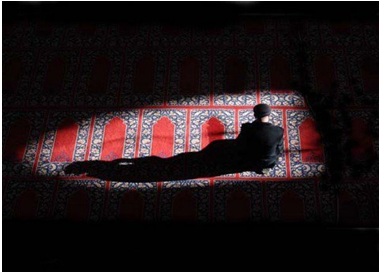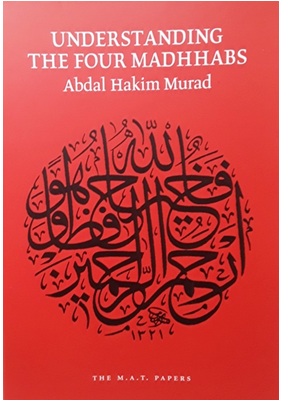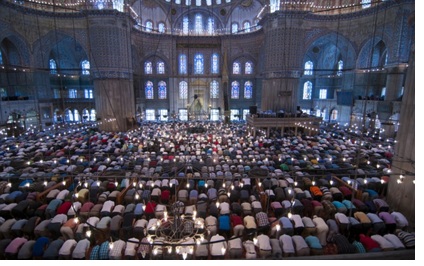Letters to the Editor
Q. What happens if anyone does haraam things repeatedly?
YMD
If it is a single weakness in a person, such as, for example, stealing, then, although it is a grave sin, but it is not as serious as when someone flouts several of the prohibited of Islam, regularly, without fear. Such a person is very close to being an unbeliever. He might be raised among them on the Day of Judgment and judged with them if he does not repent and give up.
Q. What happens if anyone did it once? What are the consequences that he will suffer in this world and in  the Hereafter?
the Hereafter?
YMD
Actually, the type of sin will have to be defined for an accurate answer. Nevertheless, in general terms, there isn’t a major sin that cannot be repented for. But, of course, by repentance we mean the Islamic repentance: one that meets with the several conditions set for it, and not that repentance which does not involve more than saying, e.g., “Astaghfirullah.” Such a repentance is no repentance if other conditions are not met.
Q. In Ramadan, the Taraveeh prayers are supposed to be offered daily, but some people pray the whole Taraveeh in a day or two, or five days. Is that correct?
Faseeh Zaman,
On Email
YMD
It is not clear to us how they pray, whether 20×30 Raka`at within a couple of days, or just pray for a few days with the congregation and then give up while the congregation continues for the month. The former method is unacceptable, while the second option is allowable.
Q. I am new reader of your magazine. There are no words that I can use to praise it. I would like you to inform me about the following books as to where they can be found: (1) Gulistan, (2) Bustan. Both are Persian, but I need English translations.
Rizwan Nazir Moulvi,
On Email
YMD
Originally published in Europe, English translations of these works have appeared long time back. At the moment they are out of stock, unless an Indian publisher has reprinted. You may inquire with a few publishers placed in Delhi. One of them being:
Kitab Bhavan, # 1784, Kalan Mahal, Darya Ganj, New Delhi – 110 002. Phone: (91-11) 327 7392/93, 327 4686, Website: www.kitabbhavan.com, E-mail: nasri@vsnl.com, Fax: (91-11) 326 3383.
Q. In a recent issue, in the Question & Answer section you have permitted the use of toothpaste during fast. However, it is observed that while the toothpaste is used, the distinct taste/ sweetness of the paste is felt and there is very high chances of the lather being swallowed. Just as we do not use, coal or other such powder to clean our teeth, similarly we must not use the paste also. It is as good as someone asking whether he can rub certain amount of sweet on his teeth during fasts. Instead, Miswak should be used because it helps to do away the bad breadth besides many of its other uses. I hope you would reconsider your answer.
Syed M.H.,
On Email
YMD
We have given the legal opinion about use of toothpaste during fasts. We have not considered types and classes of toothpaste. There are some that are bitter in the mouth (the local ones) others sweet (which hardly have any health value). Further, we have not said that the sweet lather be swallowed. It is for the user to take care of that. After all, he knows that if he swallows something, his fast will be broken.
As for Miswak, we do agree that it is better than using tooth paste. That is applicable to all situations, fasts or no fasts. That is, ordinarily also it should be used in place of toothpaste.
Further, the Muslim Ummah should not blindly follow the general public. Indeed, the Muslim Ummah of India, especially needs to save its money from wasting, not only on toothpaste, but also on various other items that are considered as necessary in modern culture, although they are not. Every little money saved will grow in size over the decades and afford a more comfortable life in future.
Finally, using Miswak before the Prayers is a strongly recommended Sunnah, even if one has used toothpaste a little earlier.
Q. I am a follower of Hanafi Maslak and I offer my prayers in a Masjid where the Imam and Muqtadi are followers of Hanafi maslak. The Masjid is managed by committee members who are members of Tableeghi Jamat. In [a recent] Ramadan, they had arranged for a Hafiz who was a follower of Shafai maslak. He led in Esha and Taraweeh and for Witr another Imam used to lead.
On enquiry as to why a Shafai Imam was arranged when hundreds of Hanafi Huffaz are available, the committee members told that firstly the Qira’at of the Hafiz is very good and, secondly, all the four Maslak are acceptable and there is no problem in following him.
Please let me know what is the Islamic ruling in this case whether the committee members have erred or my asking them was unjustified. I will also be thankful to you if you can give me the e-mail IDs of Darul Uloom Deodand and Nadwa.
Abdus Samad,
On Email
YMD
What the Tableeghi management has done is perfectly alright. In fact, that was possible because the Tablighee people are in the management of the mosque affairs. They and the Jamat-e-Islami are the most sensible and open-hearted ones in matters of Madhaahib.
 As they said, all four Madhaahib are true and, it is agreed by the four that Prayers can be offered behind the Imam of any of the four.
As they said, all four Madhaahib are true and, it is agreed by the four that Prayers can be offered behind the Imam of any of the four.
However, there seemed to be no reason for a Hanafiyy Imam leading in Witr Prayers. Witr Prayers as done by a Shafe`i Imam would also suffice. But, perhaps it was done to avoid the congregation getting confused during the Prayers, not knowing how to act when a Shafe`i Imam does something different from an Hanafiyy Imam would normally do. If this was the point, then it is justified.
The e-mail addresses are as follows:
www.darululoom-deoband.com
mohtamim@darululoom-deoband.com
http://www.nadwatululama.org/
mailto:airp@lw1.vsnl.net.in
Q. I have read that the Prophet of Islam, Muhammad, peace be upon Him, never prayed a single Taraweeh prayer in Jamaat. Is it true? If so, then why do we pray it in Jamaat?
YMD
What you have heard is incorrect. In one of the Ramadan nights the Prophet began to Pray in the mosque late in the night. Those present joined him. As the news spread, more people started reporting, out of their love of the Prayers. But he feared that if he continued, the Prayers might be declared obligatory, or later generations may treat it as obligatory. So, he did not show up on the third night.
Now, when the Prophet Prayed, he did not call it “the Taraweeh” prayers. This name was given later. Name is not important. You want to call it something else, you might. The act of Prayers is the main thing. The Prophet did it.
Q. I have also heard from some people that once during the Caliphate of Umar (ra) when the people were praying the Taraweeh individually but scattered here and there, Umar (ra) came and told them to pray side by side. The next day when they were praying in Jamaat, Umar (ra) said that when he told them to pray just side by side, they are praying in Jamaat and they have innovated a new thing in Islam and that it was Bid’ah. Please clarify.
Mohammad Khan,
On Email
YMD
Once again, what you have heard is incorrect. If this version is current among a section of Muslims, it certainly speaks of their total severance from the books of Ahaadith.
The truth is that when ‘Umar saw the Companions of the Prophet Praying separately, he expressed the desire to bring them together in a congregation, led by an Imam. He expressed that wish and then waited for a year for someone to object to his idea. Next year, (some say after two years), he ordered a very learned Companion to lead other Companions in Prayers and fixed the number of Raka`aat as twenty. He did not ask them to Pray side by side, something quite ridiculous to imagine.
Moreover, although thousands of Companions were present, no one, not even the most learned Companions who was asked to lead, protested or objected. Everyone felt what ‘Umar did was right. If anyone had thought it was incorrect, he would have protested. On several occasions individuals had differed with ‘Umar and refused to do his bidding. So, they were not afraid of him.
Thus, the Taraweeh as it is, has the backing of all the Companions, including three of the Khulafa’ al-Rashidun.  Nevertheless, the Taraweeh, its timing, and the number of Raka`a all remain non-obligatory. Anyone who doesn’t perform will not be sinning, unless a section of the community, say people of a locality or neighborhood, do not offer it by consensus. If they did that, they will be sinning as a whole since this is the Sunnah approved by the entire community.
Nevertheless, the Taraweeh, its timing, and the number of Raka`a all remain non-obligatory. Anyone who doesn’t perform will not be sinning, unless a section of the community, say people of a locality or neighborhood, do not offer it by consensus. If they did that, they will be sinning as a whole since this is the Sunnah approved by the entire community.
It is also true that ‘Umar said that it is a Bid`ah. But two points may be noted. One, he said it is Bid`ah Hasanah. That is, a good innovation. Secondly, he did not use the term Bid`ah in the technical sense: that of an innovation worthy of rejection. But rather, in its loose sense of “something new” since the Prophet did not do it in congregation for thirty days, nor did he Pray twenty Raka`aat.
Q. What is the best service that we can offer to Islam?
Tariq Shahen,
Srinagar
YMD
In general terms, the question is answerable with a hadith of the Prophet in Bukhari and Muslim. It said, “The most beloved of deeds with Allah (swt), are the Prayers on time, being dutiful to the parents and [effort] in the way of Allah.”
Yet, we might add that life is a long and complicated affair. Its needs and demands vary from individual to individual, place to place, time to time, one’s age to age. There isn’t a single deed that can be said to be the best of deeds in Islam in the sense that one does it, and that’s it, no more is required of him. No, he might accomplish a deed and suddenly another very pressing one may arise that will acquire the status of the best and most important deed then, at that time and place, for that person.

